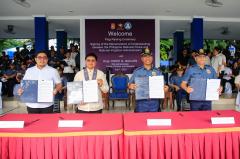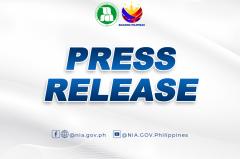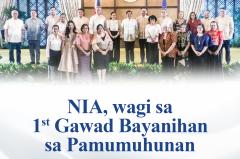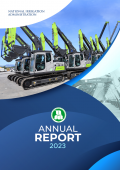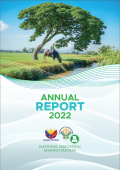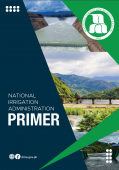
ILOILO City - Empowerment of farmers through inter-agency linkages is the solution seen by the National Irrigation Administration (NIA) here to keep farmers resilient to Climate Change. Acknowledging the impacts of the very strong El Ni˜o on agriculture and food security, NIA saw the need to enhance farmers' capacity in adapting to erratic weather conditions. This will be achieved through various basic social services and livelihood interventions that will be tailored according to their needs.
On April 14, 2016, National Government Agencies (NGA), Non-Government Organizations, and Officers of various Irrigators' Associations (IAs) across Western Visayas and Negros Occidental gathered at the Centennial Resort and Convention Center for the second Regional IA Congress. The event was a venue for NIA to discuss its proposal for an inter-agency convergence mechanism. This strategy will ensure the participation of other government agencies, NGOs and the farmer-beneficiaries themselves in the preparation of concrete plans for Climate Change adaptation.
"We need to converge so we can together address Climate Change. . .it is not just us in NIA but we also recognize the roles of other agencies, NGOs and you our IAs in the development of concrete solutions to the impacts of climate change to agriculture and food security," NIA Regional Manager Gerardo P. Corsiga addressed the participants of the congress. "We already have a working inter-agency convergence mechanism in JRMP II, which addressed the demands of our brother IPs (Indigenous Peoples) in Calinog for infrastructure, livelihood and social basic services, so I have high hopes that we can do the same for our IAs," he added.
'Convergence mechanism' was NIA's strategy to win IPs' consent for its flagship project in Western Visayas - the Jalaur River Multi-Purpose Project Stage II. Under this initiative, 27 national government agencies forged a Memorandum of Agreement (MOA) to address various infrastructure, livelihood and social basic services requests of the affected IP communities. Manager Corsiga hopes to replicate the same to the IAs of Western Visayas to mitigate the impacts of extreme weather conditions to their source of livelihood and to food security in the region.
Present during said congress to give their support and update participants of their programs are representatives from the Department of Agriculture (DA), Landbank of the Philippines (LBP), National Food Authority (NFA), and Philippine Coconut Authority (PCA). In attendance too are representatives of the Department of Social Welfare and Development (DSWD), Philippine Crop Insurance Corporation (PCIC), Technical Education and Skills Development Authority (TESDA), Department of interior and Local Government (DILG) and Department of Labor and Employment (DOLE).
In the meeting, NIA Supervising Institutional Development Officer Ruth Cely M. Jamelo explained that after the congress, consultative discussions in the level of provincial irrigation offices will be conducted to identify specific needs of the IAs.
The event was also a venue for NIA to strengthen its campaign for Irrigation Service Fee (ISF) collection. Considered 'life-blood' of the agency, the ISF is a mandatory fee for IAs intended for the maintenance of the agency's projects and institutional development programs.

